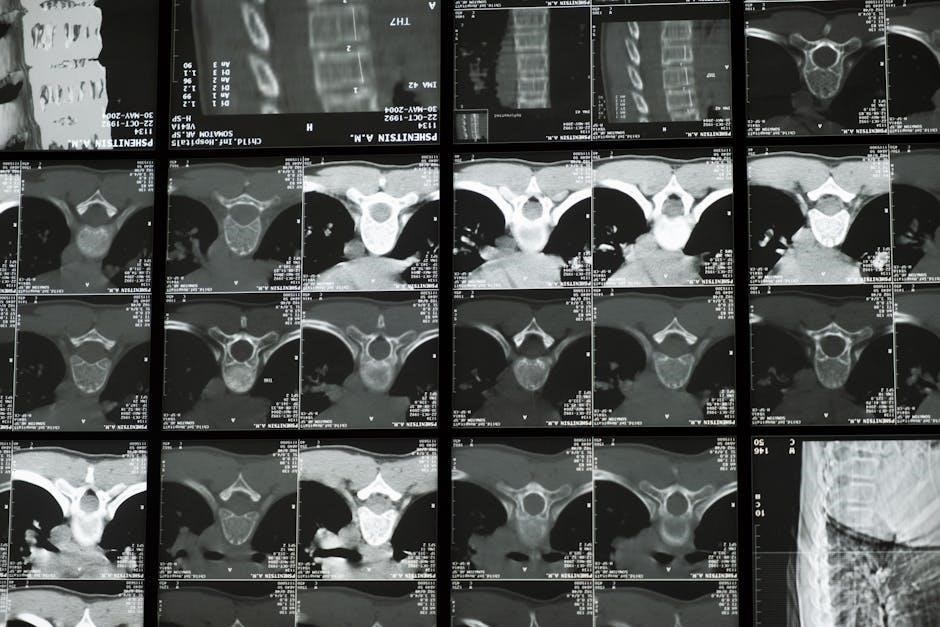
structured clinical interview for dsm-5 pdf
The Structured Clinical Interview for DSM-5 is a semistructured interview guide administered by clinicians, providing a comprehensive diagnostic tool for DSM-5 diagnoses, using a systematic approach to assess mental health conditions accurately always.
Definition and Purpose of the SCID-5
The Structured Clinical Interview for DSM-5 (SCID-5) is defined as a semistructured interview guide for making the major DSM-5 diagnoses, providing a comprehensive and systematic approach to assess mental health conditions accurately. The purpose of the SCID-5 is to guide clinicians in conducting a thorough diagnostic evaluation, using a standardized and reliable method to assess the presence of mental health disorders. The SCID-5 is designed to be administered by trained mental health professionals, who are familiar with the DSM-5 classification and diagnostic criteria. The interview guide is used to assess a wide range of mental health conditions, including mood disorders, anxiety disorders, and personality disorders. The SCID-5 is an essential tool for clinicians, as it provides a standardized and reliable method for making accurate diagnoses, and developing effective treatment plans. The SCID-5 is widely used in clinical practice, research, and education, and is considered an essential resource for mental health professionals. The SCID-5 is available in various formats, including a clinician version and a quick version.

Administration and Training
Administered by trained clinicians, requiring specialized training and expertise always using.
Requirements for Administering the SCID-5

To administer the SCID-5, clinicians must have a thorough understanding of the DSM-5 classification and diagnostic criteria, as well as extensive training and experience in conducting clinical interviews. They should be familiar with the SCID-5 protocol and have the necessary skills to establish a rapport with patients, ask sensitive questions, and accurately assess their symptoms. The interviewer should also be knowledgeable about the cultural and linguistic background of the patient to ensure accurate assessment and diagnosis. Additionally, administrators should have a graduate degree in a relevant field, such as psychology or psychiatry, and have completed specialized training in the use of the SCID-5. They must also have experience in working with diverse patient populations and be able to maintain a professional and empathetic demeanor during the interview process. This ensures that the SCID-5 is administered effectively and that patients receive accurate diagnoses and appropriate treatment. The requirements for administering the SCID-5 are stringent to ensure the integrity and validity of the assessment results.

Types of SCID-5
The SCID-5 has different versions, including the Clinician Version and QuickSCID, each serving distinct purposes and administrations always accurately.
Clinician Version and QuickSCID
The Clinician Version of the SCID-5 is a comprehensive diagnostic tool used by trained mental health professionals to conduct a clinical interview for! DSM-5 criteria, providing a thorough assessment of a patient’s mental health conditions. The QuickSCID, on the other hand, is a more concise version of the SCID, designed to be administered in 30 minutes or less, using primarily closed-ended questions that require a simple YES or NO response from the patient; This efficiency is achieved by reducing the need for the interviewer to gather extensive information, making it an ideal tool for situations where time is limited. The Clinician Version and QuickSCID are both valuable resources for mental health professionals, allowing them to accurately diagnose and treat patients according to the DSM-5 classification and diagnostic criteria. The Clinician Version provides a detailed assessment, while the QuickSCID offers a rapid and efficient diagnostic tool, both of which are essential in clinical practice, enabling professionals to make informed decisions about patient care and treatment.

Diagnostic Criteria
DSM-5 diagnostic criteria are used to assess mental health conditions, providing a systematic approach to diagnosis, using specific criteria and guidelines, always ensuring accurate diagnoses and treatment plans are developed.
DSM-5 Classification and Diagnostic Criteria
The DSM-5 classification system provides a comprehensive framework for diagnosing mental health conditions, using specific criteria and guidelines to ensure accurate diagnoses. The Structured Clinical Interview for DSM-5 is designed to assess these criteria, providing a systematic approach to diagnosis. The interview guide is organized according to the DSM-5 classification system, allowing clinicians to assess a wide range of mental health conditions. The diagnostic criteria are based on the latest research and clinical expertise, ensuring that diagnoses are accurate and reliable. The DSM-5 classification system is widely used in clinical practice, and the Structured Clinical Interview for DSM-5 is an essential tool for clinicians working with mental health conditions. The interview guide provides a clear and concise framework for assessing diagnostic criteria, making it an invaluable resource for clinicians. The DSM-5 classification system and diagnostic criteria are used to develop effective treatment plans, and the Structured Clinical Interview for DSM-5 is an essential part of this process.
The Structured Clinical Interview for DSM-5 provides a reliable diagnostic tool, enhancing clinical practice and patient outcomes significantly always with accurate diagnoses and treatment plans implemented effectively online.
Importance of the SCID-5 in Clinical Practice
The SCID-5 plays a crucial role in clinical practice as it provides a standardized and systematic approach to diagnosing mental health conditions. This diagnostic tool enables clinicians to accurately assess and identify various mental health disorders, ensuring that patients receive appropriate treatment and care. The SCID-5 is widely used in clinical settings, including hospitals, clinics, and private practices, and is considered an essential component of mental health assessment and diagnosis. By using the SCID-5, clinicians can ensure that their diagnoses are reliable and consistent with the DSM-5 criteria, which is essential for developing effective treatment plans and improving patient outcomes. The importance of the SCID-5 in clinical practice cannot be overstated, as it has a significant impact on the quality of care provided to patients and the overall effectiveness of mental health services. Overall, the SCID-5 is a valuable resource for clinicians and mental health professionals.

